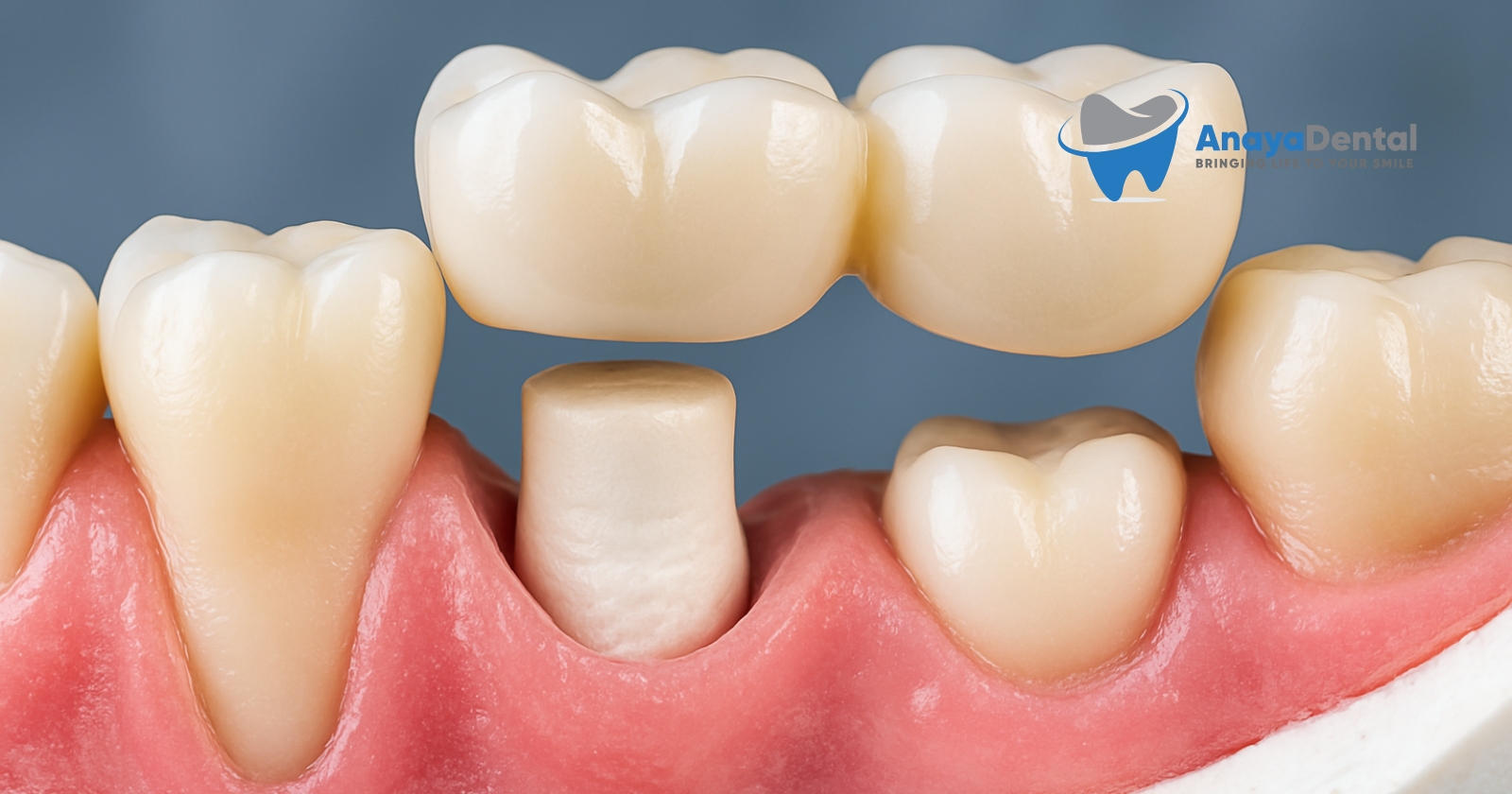What Is the D6740 Dental Code?
The D6740 dental code refers to a crown restoration made of porcelain/ceramic material that is placed on an existing dental implant. Unlike traditional crowns that go over natural teeth, this specific code designates a prosthetic crown that attaches to an implant abutment, completing the final stage of dental implant treatment.
When you receive treatment involving this code, you’re getting a highly aesthetic, durable restoration designed to function like a natural tooth while blending seamlessly with your existing dentition.
Medical Context of Implant Crowns
The Dental Implant Process
Before discussing the financial aspects, it’s important to understand where the D6740 procedure fits within the overall implant treatment:
Try Our Dental Calculators
- Implant placement (surgical phase) – A titanium post is inserted into the jawbone
- Healing period – Typically 3-6 months for osseointegration (bone fusion with implant)
- Abutment placement – The connector piece that links the implant to the crown
- Crown restoration (D6740) – The visible porcelain/ceramic portion that resembles a tooth
The D6740 code specifically applies to the final restoration phase, not the surgical implant placement or abutment attachment.
Benefits of Porcelain/Ceramic Implant Crowns
Porcelain/ceramic implant crowns offer several advantages that make them a popular choice:
- Superior aesthetics compared to metal or metal-porcelain options
- Biocompatibility with surrounding tissues
- Color-matching capabilities to blend with adjacent teeth
- Durability comparable to natural enamel
- Stain resistance for long-term appearance
Research published in the Journal of Prosthodontics indicates that ceramic implant crowns demonstrate a 95% success rate after 10 years with proper care and maintenance.
Financial Considerations for D6740 Procedures
Typical Cost Range
The cost of a D6740 porcelain/ceramic implant crown varies based on geographic location, the dental provider’s expertise, and laboratory quality. You can generally expect to pay:
| Region | Low Range | Average | High Range |
|---|---|---|---|
| Urban Areas | $1,500 | $1,850 | $2,500+ |
| Suburban Areas | $1,300 | $1,600 | $2,200 |
| Rural Areas | $1,100 | $1,400 | $1,900 |
Important note: These costs reflect the crown only (D6740) and do not include the implant placement, abutment, or any necessary preparatory procedures.
Insurance Coverage Options
Dental Insurance
Many dental insurance plans provide partial coverage for implant crowns, though coverage varies significantly:
- Basic plans may provide 0-25% coverage or exclude implant restorations entirely
- Mid-tier plans typically offer 30-50% coverage after deductibles
- Premium plans might cover 50-80% of the UCR (Usual, Customary, and Reasonable) fee
Most plans impose annual maximums ranging from $1,000-$2,000, which can limit your benefits for expensive procedures like implant crowns.
Medical Insurance
In specific situations, medical insurance may provide coverage:
- When tooth loss results from trauma or accident
- In cases where tooth loss impacts overall health (e.g., inability to maintain nutrition)
- When tooth loss is related to certain medical conditions
You should verify coverage with your specific carrier, as medical insurance coverage for dental procedures is the exception rather than the rule.
Payment Options When Insurance Falls Short
Dental Financing Programs
Several options exist to make D6740 procedures more affordable:
- Dental office payment plans – Many practices offer in-house financing with 0% interest for 6-12 months
- CareCredit – A healthcare credit card with promotional interest-free periods for qualified applicants
- Lending Club Patient Solutions – Medical financing with fixed monthly payments
- Dental discount plans – Membership programs offering 15-60% discounts on procedures
Health Savings Accounts (HSAs) and Flexible Spending Accounts (FSAs)
You can use tax-advantaged funds from these accounts to pay for D6740 procedures:
- HSA funds never expire and can accumulate over time
- FSA funds typically must be used within the plan year or grace period
- Both allow you to pay with pre-tax dollars, effectively providing a discount equal to your tax rate
Treatment Alternatives to Consider
If the cost of a D6740 porcelain/ceramic implant crown exceeds your budget, alternative options include:
- D6750/D6751/D6752 – Porcelain-fused-to-metal crowns (typically 10-30% less expensive)
- D6780/D6781/D6782 – Partial coverage crowns (when applicable)
- D5211/D5212 – Removable partial dentures (significantly less expensive but with functional limitations)
Each alternative comes with distinct advantages and disadvantages regarding aesthetics, longevity, and functionality.
Questions to Ask Your Dental Provider
Before proceeding with a D6740 procedure, consider asking:
- “What is the expected lifespan of this ceramic crown?”
- “What are the maintenance requirements to ensure longevity?”
- “Do you offer in-office payment plans or financing options?”
- “Can I see before-and-after photos of similar cases you’ve completed?”
- “What are the warranty terms for this restoration?”
Quick Review
- D6740 designates a porcelain/ceramic crown placed on a dental implant
- The procedure represents the final phase of implant treatment
- Average costs range from $1,400-$1,850 for the crown only
- Insurance coverage varies widely from 0-80% depending on your plan
- Financing options include dental payment plans, medical credit cards, and tax-advantaged accounts
- Porcelain/ceramic crowns offer superior aesthetics but may cost more than metal alternatives
- Proper maintenance can extend the lifespan of your implant crown beyond 10 years
By understanding both the clinical and financial aspects of the D6740 dental code, you can make informed decisions about this significant dental investment.


